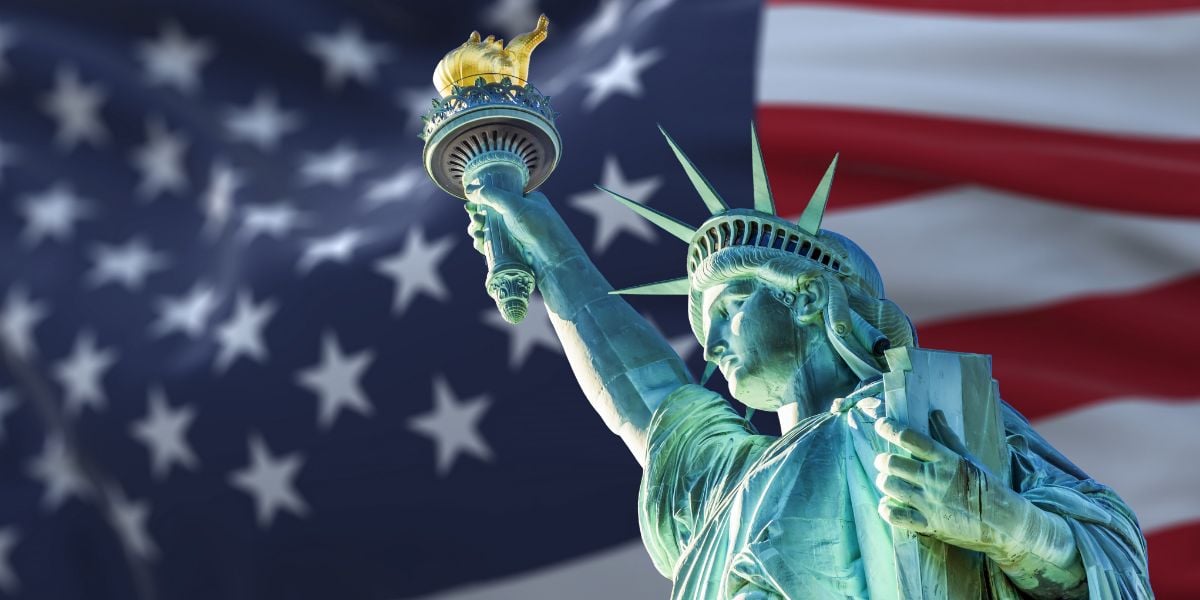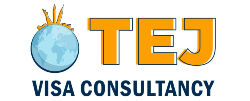Study in USA – Know all about Universities, Courses, Eligibility & more

- The US has long maintained its reputation as a premier education destination for Indian students. Renowned for its world-class institutions, diverse academic programs, and vibrant cultural environment, the US continues to attract students from across the globe.
- Boston is the best US city for students, according to QS Best Student Cities. With a near-perfect score out of 100 (Boston ranks a solid 96) in student view.
- In the past year, the US gave out a lot of special visas for students, and most of them went to students from India. For 2024, the US has already given around 1.25 lakh student visas to Indians. That means if you’re from India and thinking about studying abroad, the US is a top choice.
- Students from all over the world, especially Indian students looking to study abroad, find the US an appealing option because of the popularity of STEM courses, the simplicity of the application process, and exposure.
- Why Study in US?
- Studying in the United States offers numerous advantages that make it an attractive destination for international students. Here are some key reasons:
1. High-Quality Education
- Renowned Universities: The U.S. is home to many of the world’s top universities, such as Harvard, MIT, Stanford, and Caltech, which are known for their rigorous academic programs and excellence.
- Accreditation and Standards: U.S. institutions adhere to high academic standards and undergo rigorous accreditation processes to ensure quality education.
2. Diverse Range of Programs
- Wide Selection: Students can choose from a vast array of programs and majors, allowing them to find courses that perfectly match their interests and career goals.
- Interdisciplinary Approach: U.S. universities often encourage an interdisciplinary approach, enabling students to combine different fields of study.
3. Research Opportunities
- Cutting-Edge Research: The U.S. is a leader in research and innovation, offering students the chance to engage in groundbreaking research across various disciplines.
- Funding and Resources: Substantial funding for research projects and access to advanced laboratories and facilities enhance the learning experience.
4. Global Recognition
- Prestigious Degrees: A degree from a U.S. institution is highly regarded worldwide and can significantly enhance a graduate’s career prospects.
- Alumni Network: Strong alumni networks provide valuable connections and opportunities in various industries globally.
5. Cultural Diversity
- Multicultural Environment: U.S. campuses are known for their cultural diversity, offering a rich and inclusive environment where students can learn from peers from different backgrounds.
- Cultural Exchange: This exposure to different cultures fosters global awareness and enhances interpersonal skills.
6. Flexibility and Support
- Flexible Curriculum: Many U.S. institutions offer flexible curriculums, allowing students to explore different subjects before declaring a major.
- Student Support Services: Universities provide extensive support services, including academic advising, career counseling, mental health services, and international student offices to assist with visa and immigration issues.
7. Career Opportunities
- OPT and CPT Programs: The Optional Practical Training (OPT) and Curricular Practical Training (CPT) programs allow international students to gain work experience in the U.S. during and after their studies.
- Employment Prospects: The U.S. job market, especially in fields like technology, engineering, business, and healthcare, offers ample opportunities for graduates.
8. Innovation and Entrepreneurship
- Startup Culture: The U.S. has a vibrant startup culture and provides numerous resources for aspiring entrepreneurs, including incubators, accelerators, and funding opportunities.
- Silicon Valley and Beyond: Proximity to innovation hubs like Silicon Valley provides unique opportunities for networking and career advancement.
9. Scholarships and Financial Aid
- Merit-Based Scholarships: Many universities offer scholarships based on academic performance, making education more affordable for talented students.
- Financial Aid: Need-based financial aid and assistantship opportunities are available to help cover tuition and living expenses.
10. Personal Growth
- Independence and Confidence: Studying abroad helps students develop independence, adaptability, and confidence, preparing them for global careers and life challenges.
- Broadened Perspectives: Living in a new country broadens students’ perspectives, enhances their understanding of global issues, and fosters personal growth.
- Popular Universities in USA
The United States is home to many world-renowned universities that attract students from across the globe. Here are some of the most popular and prestigious universities in the U.S.:
Ivy League Schools
- Harvard University (Cambridge, MA)
- Known for: Law, Business, Medicine, and Arts and Sciences
- Yale University (New Haven, CT)
- Known for: Law, Drama, Political Science, and Arts and Sciences
- Princeton University (Princeton, NJ)
- Known for: Public Affairs, Economics, and Engineering
- Columbia University (New York, NY)
- Known for: Journalism, Business, Law, and Arts and Sciences
- University of Pennsylvania (Philadelphia, PA)
- Known for: Business (Wharton), Medicine, and Law
- Cornell University (Ithaca, NY)
- Known for: Engineering, Hotel Management, and Veterinary Medicine
- Dartmouth College (Hanover, NH)
- Known for: Liberal Arts, Business (Tuck), and Medicine (Geisel)
- Brown University (Providence, RI)
- Known for: Liberal Arts, Medicine, and Engineering
Other Prestigious Universities
- Massachusetts Institute of Technology (MIT) (Cambridge, MA)
- Known for: Engineering, Computer Science, and Economics
- Stanford University (Stanford, CA)
- Known for: Business, Engineering, Computer Science, and Law
- California Institute of Technology (Caltech) (Pasadena, CA)
- Known for: Engineering, Physics, and Biology
- University of Chicago (Chicago, IL)
- Known for: Economics, Law, Business, and Social Sciences
- Duke University (Durham, NC)
- Known for: Medicine, Law, Business, and Engineering
- Johns Hopkins University (Baltimore, MD)
- Known for: Medicine, Public Health, and International Studies
- Northwestern University (Evanston, IL)
- Known for: Journalism, Business, Law, and Engineering
Large Public Universities
- University of California, Berkeley (UC Berkeley) (Berkeley, CA)
- Known for: Engineering, Computer Science, Business, and Law
- University of California, Los Angeles (UCLA) (Los Angeles, CA)
- Known for: Film, Medicine, Engineering, and Business
- University of Michigan (Ann Arbor, MI)
- Known for: Engineering, Business, Law, and Medicine
- University of Virginia (UVA) (Charlottesville, VA)
- Known for: Business, Law, and Liberal Arts
- University of North Carolina at Chapel Hill (UNC) (Chapel Hill, NC)
- Known for: Business, Medicine, and Public Health
- University of Texas at Austin (UT Austin) (Austin, TX)
- Known for: Engineering, Business, and Law
- University of Washington (Seattle, WA)
- Known for: Medicine, Computer Science, and Engineering
Other Notable Institutions
- New York University (NYU) (New York, NY)
- Known for: Arts, Business, Law, and Social Sciences
- Carnegie Mellon University (Pittsburgh, PA)
- Known for: Computer Science, Engineering, and Business
- Georgetown University (Washington, DC)
- Known for: International Relations, Law, and Business
- University of Southern California (USC) (Los Angeles, CA)
- Known for: Film, Business, and Engineering
- Emory University (Atlanta, GA)
- Known for: Medicine, Business, and Law
- Vanderbilt University (Nashville, TN)
- Known for: Medicine, Business, and Engineering
- Popular Courses in USA
The United States offers a wide array of courses across various disciplines, catering to diverse academic and career interests. Here are some of the most popular and sought-after courses among students in the U.S.:
- Computer Science
- Overview: This course covers a wide range of topics including algorithms, data structures, software engineering, artificial intelligence, machine learning, and cybersecurity.
- Why Popular: The technology sector is rapidly growing, and there’s a high demand for skilled professionals in areas like software development, data science, and AI.
- Top Universities: Massachusetts Institute of Technology (MIT), Stanford University, University of California, Berkeley (UC Berkeley), Carnegie Mellon University.
- Business Administration (MBA)
- Overview: The MBA program focuses on business management, finance, marketing, leadership, entrepreneurship, and strategic planning.
- Why Popular: An MBA is seen as a gateway to leadership positions in various industries and provides a strong network and career advancement opportunities.
- Top Universities: Harvard University, Stanford University, University of Pennsylvania (Wharton), University of Chicago (Booth), Northwestern University (Kellogg).
- Medicine (MD)
- Overview: Medical programs include pre-medical coursework followed by medical school, where students receive training in various fields of medicine through lectures, labs, and clinical rotations.
- Why Popular: A career in medicine is highly respected and offers the opportunity to make a significant impact on people’s health and well-being.
- Top Universities: Harvard Medical School, Johns Hopkins University, Stanford University, University of California, San Francisco (UCSF), University of Pennsylvania (Perelman).
- Engineering
- Overview: Engineering disciplines include mechanical, electrical, civil, computer, chemical, and aerospace engineering, with a focus on problem-solving, design, and innovation.
- Why Popular: Engineers are in demand across various industries, and the field offers diverse career opportunities and high earning potential.
- Top Universities: Massachusetts Institute of Technology (MIT), Stanford University, University of California, Berkeley (UC Berkeley), California Institute of Technology (Caltech), Georgia Institute of Technology.
- Law (JD)
- Overview: Juris Doctor (JD) programs cover constitutional law, contracts, torts, civil procedure, criminal law, property law, and ethics, preparing students for a career in legal practice.
- Why Popular: A law degree opens doors to careers in legal practice, corporate law, public service, and academia, and is essential for becoming a licensed attorney.
- Top Universities: Yale Law School, Harvard Law School, Stanford Law School, Columbia Law School, University of Chicago Law School.
- Duration of Courses in USA
Associate Degrees in USA are for 2 years, whilst Bachelor’s degrees are for four years. To study MS in USA, students need to devote one or two years depending on the university. Doctorate programs are for a period of 3-5 years, while Summer programs last for 6-10 weeks depending on the course and school.
- Entry Requirements for colleges in USA
Entry requirements for colleges and universities in the USA can vary widely depending on the institution, the program of study, and whether you are applying as an undergraduate or graduate student. Here are the general entry requirements typically needed:
Undergraduate (Bachelor’s Degree) Entry Requirements:
- Academic Transcripts:
- High school transcripts showing completion of secondary education.
- Transcripts should include grades, GPA, and class rank (if available).
- Standardized Tests:
- SAT or ACT: Many colleges require either SAT (Reasoning Test or Subject Tests) or ACT scores.
- TOEFL or IELTS: For international students whose first language is not English, proficiency tests like TOEFL (Test of English as a Foreign Language) or IELTS (International English Language Testing System) are typically required.
- Letters of Recommendation:
- Usually 1-2 letters from teachers or counselors who can attest to your academic abilities and character.
- Essay or Personal Statement:
- Often required, where you explain your academic goals, interests, and reasons for applying to that particular college.
- Extracurricular Activities:
- Some colleges consider involvement in extracurricular activities, community service, or leadership roles.
- Interview:
- Some colleges may require or offer optional interviews as part of the application process.
Graduate (Master’s or PhD) Entry Requirements:
- Academic Transcripts:
- Bachelor’s degree transcripts showing completion of undergraduate studies.
- Transcripts should include grades, GPA, and degree conferral information.
- Standardized Tests:
- GRE (Graduate Record Examination): Commonly required for many graduate programs, especially in fields like engineering, sciences, and humanities.
- GMAT (Graduate Management Admission Test): Required for MBA programs.
- TOEFL or IELTS: For international students, demonstrating English proficiency.
- Letters of Recommendation:
- Usually 2-3 letters from professors or professionals who can evaluate your academic abilities and potential for graduate study.
- Statement of Purpose:
- A written statement outlining your academic and career goals, research interests (if applicable), and reasons for applying to the program.
- Resume or CV:
- Detailing your academic achievements, work experience, research experience, publications (if any), and relevant skills.
- Interview:
- Some graduate programs may require interviews as part of the admissions process, especially for highly competitive programs or specific fields.
Additional Requirements:
- Financial Documentation: For international students, proof of financial ability to cover tuition, fees, and living expenses may be required for visa purposes.
- Portfolio: Required for applicants to programs in fine arts, design, architecture, and sometimes for other creative disciplines.
Note:
- Entry requirements can vary significantly between institutions and programs, so it’s important to check the specific requirements for each college or university you are interested in applying to.
- Deadlines for applications and required documents vary, so be sure to check with each institution for their specific deadlines and application procedures.
- Intakes To study in USA
For Indian students they need to be aware of the intakes. These include the Fall and Spring intake. Some universities are also open for the Summer and Winter intake.
- Average Rent in the US
The average rent in the United States varies widely based on factors such as location, type of housing, and local market conditions. As of 2024, here are some general insights:
National Average
- National Average Rent: The national average rent for an apartment in the U.S. is around $1,700 per month. This figure can fluctuate depending on the type of apartment (studio, one-bedroom, two-bedroom, etc.).
By Type of Apartment
- Studio Apartment: Typically ranges from $1,000 to $1,500 per month.
- One-Bedroom Apartment: Generally between $1,200 and $1,800 per month.
- Two-Bedroom Apartment: Often ranges from $1,500 to $2,500 per month.
By Region
- Northeast (e.g., New York City, Boston): High cost of living with average rents ranging from $2,000 to $4,000 per month for a one-bedroom apartment.
- West Coast (e.g., San Francisco, Los Angeles, Seattle): Also high with averages around $2,000 to $3,500 per month for a one-bedroom apartment.
- Midwest (e.g., Chicago, Minneapolis): More affordable, with average rents between $1,200 and $2,000 per month for a one-bedroom apartment.
- South (e.g., Atlanta, Dallas, Miami): Generally lower, averaging $1,200 to $2,200 per month for a one-bedroom apartment.
By City
- New York City, NY: One of the highest, with average rents around $3,500 per month for a one-bedroom apartment.
- San Francisco, CA: Comparable to NYC, with average rents around $3,000 per month for a one-bedroom.
- Los Angeles, CA: Around $2,500 per month for a one-bedroom apartment.
- Chicago, IL: Approximately $1,800 per month for a one-bedroom apartment.
- Houston, TX: More affordable, with average rents around $1,300 per month for a one-bedroom apartment.
- Average Salary in the US
The average salary in the United States varies significantly based on factors such as occupation, industry, experience, education, and location. Here are some general insights based on data available as of 2024:
National Average
- National Average Salary: The national average annual salary for full-time workers in the United States is approximately $60,000 to $70,000. This figure includes a wide range of occupations and experience levels.
By Occupation
- Healthcare Professionals
- Physicians and Surgeons: $200,000 – $300,000+
- Registered Nurses: $75,000 – $85,000
- Pharmacists: $120,000 – $130,000
- Technology and Engineering
- Software Developers: $100,000 – $120,000
- Data Scientists: $110,000 – $130,000
- Electrical Engineers: $90,000 – $110,000
- Business and Finance
- Financial Analysts: $80,000 – $90,000
- Accountants: $70,000 – $80,000
- Marketing Managers: $110,000 – $130,000
- Education
- Elementary and Secondary School Teachers: $50,000 – $70,000
- College Professors: $70,000 – $120,000 (varies by institution and tenure)
- Skilled Trades
- Electricians: $55,000 – $70,000
- Plumbers: $50,000 – $65,000
- Construction Managers: $85,000 – $100,000
By Industry
- Technology: Generally offers higher salaries, with averages often exceeding $100,000 for many positions.
- Finance and Insurance: High-paying sector, with average salaries typically ranging from $80,000 to $120,000.
- Healthcare: High demand and specialized skills result in higher average salaries, often above $75,000.
- Education: Lower average salaries compared to tech and finance, typically ranging from $50,000 to $70,000.
- Retail and Hospitality: Generally lower average salaries, often ranging from $30,000 to $50,000.
By Experience and Education
- Entry-Level Positions: Typically start at lower salary ranges, around $40,000 to $60,000, depending on the field.
- Mid-Career Professionals: Salaries often range from $60,000 to $100,000, depending on the industry and role.
- Experienced Professionals: Those with extensive experience and advanced degrees can earn $100,000 to $150,000+.
- Average tuition Fees in US
The average tuition fees for studying in the United States vary significantly based on the type of institution (public or private), the level of study (undergraduate or graduate), and the specific program. Here is an overview of the average tuition fees as of 2024:
Ø Undergraduate Programs
Public Universities (In-State Students)
- Average Annual Tuition: $10,000 to $12,000
- Range: $5,000 to $15,000
Public Universities (Out-of-State Students)
- Average Annual Tuition: $25,000 to $30,000
- Range: $15,000 to $35,000
Private Universities
- Average Annual Tuition: $35,000 to $50,000
- Range: $20,000 to $60,000+
Ø Graduate Programs
Public Universities (In-State Students)
- Average Annual Tuition: $12,000 to $15,000
- Range: $8,000 to $20,000
Public Universities (Out-of-State Students)
- Average Annual Tuition: $25,000 to $30,000
- Range: $15,000 to $35,000
Private Universities
- Average Annual Tuition: $30,000 to $45,000
- Range: $20,000 to $55,000+
Professional Programs (e.g., MBA, Law, Medicine)
- Average Annual Tuition: $40,000 to $60,000
- Range: $30,000 to $80,000+
Ø Additional Costs
- Fees: Besides tuition, students often have to pay additional fees for registration, labs, and other services, which can range from $1,000 to $2,000 per year.
- Books and Supplies: Costs for books and supplies typically range from $1,000 to $2,000 per year.
- Living Expenses: Living expenses (housing, food, transportation, personal expenses) can vary widely based on location and lifestyle but generally range from $10,000 to $20,000 per year.
- Glimpse into the Future in the US
- For years, the US has been the global leader in higher education and the top study-abroad destination for international students worldwide. When you plan to study in US, the country offers exceptional educational opportunities and an attractive, supportive environment for Indian students. Hence, the US saw new Indian students grow throughout the previous decade.
- In 2018, there were 21 billion-dollar US startups with a founder who first came to study in US as an international student. Fast forward to 2022-23, and the number of billion-dollar startups with an international student founder has increased to 143.
- The opportunity for innovation from international students in the US is exponentially high. Barring any major policy changes over the next three years, by 2025, the US could easily be the home of over 300 billion-dollar companies founded by an international student.
Impactful Contributions of Indian Talent in the U.S.
Indian students have a strong track record of success in the United States, particularly in areas like technology, business, and academia. Here are a few examples of notable Indian students and professionals who have made significant impacts in the U.S.:
- Satya Nadella – Satya Nadella, an alumnus of the University of Wisconsin-Milwaukee and the University of Chicago, became the CEO of Microsoft in 2014. He is widely recognized for transforming Microsoft and leading its growth in cloud computing and AI.
- Sundar Pichai – Sundar Pichai, a graduate of Stanford University and the Wharton School of the University of Pennsylvania, is the CEO of Alphabet Inc. and Google LLC. He has been instrumental in the development of key Google products such as Google Chrome and Google Drive.
- Indra Nooyi – Indra Nooyi, who studied at Yale School of Management, served as the CEO of PepsiCo from 2006 to 2018. She is known for her strategic redirection of the company towards healthier products and sustainability.
- Raj Chetty – Raj Chetty, an economics professor at Harvard University, is known for his groundbreaking research on economic mobility, education, and inequality. He has received numerous awards and recognitions for his work in economics and public policy.
- Kalpana Chawla – Kalpana Chawla, an alumna of the University of Texas at Arlington and the University of Colorado Boulder, was the first woman of Indian origin to go to space. She was a mission specialist on the Space Shuttle Columbia.
- Vinod Khosla – Vinod Khosla, who earned his MBA from Stanford Graduate School of Business, co-founded Sun Microsystems and later founded Khosla Ventures, a venture capital firm that invests in innovative technologies.
These individuals represent just a few examples of the many Indian students who have excelled in the United States across various fields. Their achievements highlight the significant contributions of the Indian diaspora to the U.S. and the world.






